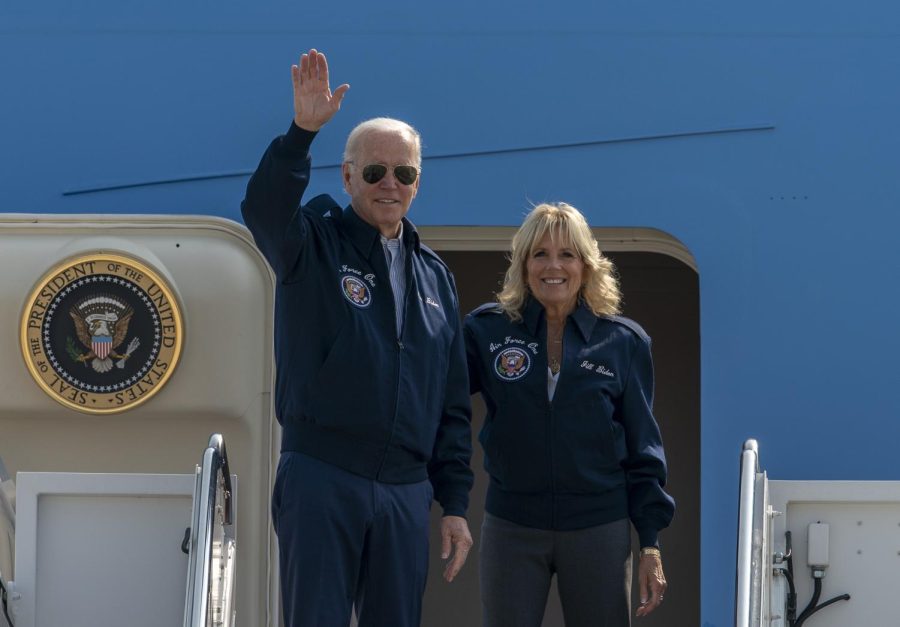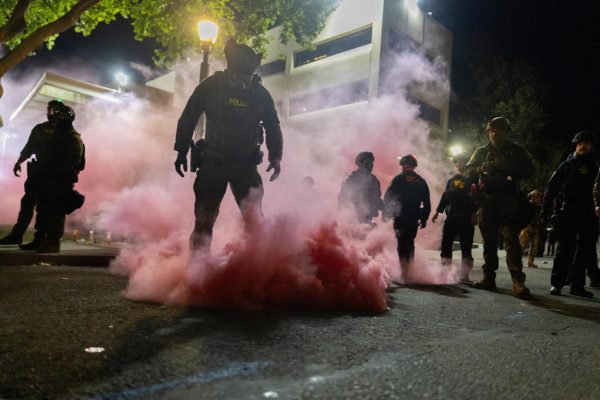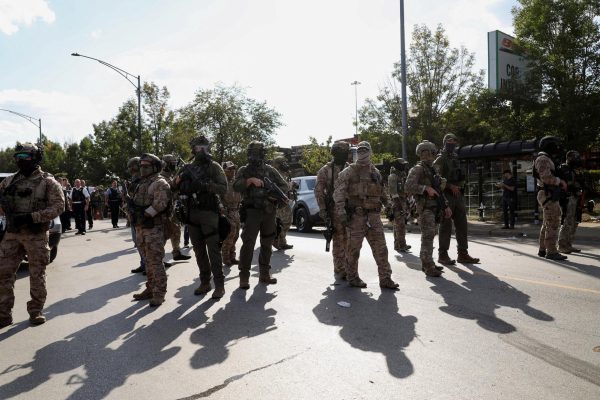The U.S. needs a clear policy on Taiwan
AP Photo/Gemunu Amarasinghe, File
U.S. President Joe Biden waves as first lady Jill Biden watches standing at the top of the steps of Air Force One before boarding at Andrews Air Force Base, Md., Saturday, Sept. 17, 2022. President Biden said during and interview broadcasted on Sunday, Sept. 18, 2022, that U.S. forces would defend Taiwan if China tries to invade the self-ruled island claimed by Beijing as part of its territory, adding to displays of official American support for the island democracy in the face of Chinese intimidation.
With the threat of war between the U.S. and China looming, the Biden administration needs to stick to a clear policy on Taiwan.
In an interview with 60 Minutes’s Scott Pelley, President Biden made his thoughts abundantly clear that U.S. forces would defend the island of Taiwan in the event of an invasion by China.
Despite the straightforward language by the president, U.S. State Department spokesperson Ned Price had a different take on the issue.
“Our ‘one-China’ policy has not changed. We don’t take a position on sovereignty,” Price said in a press conference on Sept. 26.
This is not the first time conflicting views on Taiwan between Biden and his administration have appeared. While at a conference in Tokyo in May, Biden was asked if he was willing to get involved militarily to defend Taiwan.
“Yes,” said Biden. “That was the commitment we made.”
In a similar fashion to the response of the 60 Minutes interview, Price and the State Department reiterated that the U.S. policy on Taiwan remained unchanged, effectively contradicting the President. These conflicting statements from Biden and the state department could have dangerous repercussions. Biden’s policy of military intervention would mean war with China, a nuclear power that is the U.S.’s largest supplier of imports as of 2020. Not only would the human cost of war be a major issue, but the negative economic implications would affect the U.S. on an unprecedented scale.
“Those who play with fire will perish by it”, said Chinese president Xi Jinping during a phone call with Biden in July.
The Chinese have made it clear that they are against any recognition of Taiwan’s sovereignty by the U.S., which has led to increased tensions over the issue this year. On top of Biden’s comments, a visit to Taiwan in August by Speaker of the House Nancy Pelosi ramped up the tensions between the U.S. and China. Chinese Foreign Minister Wang Yi claimed the visit “seriously violates the one-China principle, maliciously infringes on China’s sovereignty and blatantly engages in political provocations.”
Additionally, U.S. Secretary of Transportation Pete Buttigieg received backlash from Chinese authorities after suggesting on Sept. 27 that Taiwan should be given the opportunity to participate in the U.N.’s International Civil Aviation Organization.
In recent history, the U.S. has used a policy of strategic ambiguity as it relates to military intervention in Taiwan. With Biden evidently abandoning this policy, a real plan needs to be in place in order to ensure peace. No matter which approach the United States is going to take in regards to China and Taiwan, there needs to be clarity between governmental powers. This is a brewing storm that would affect many lives, so there needs to be a clear policy in place.








